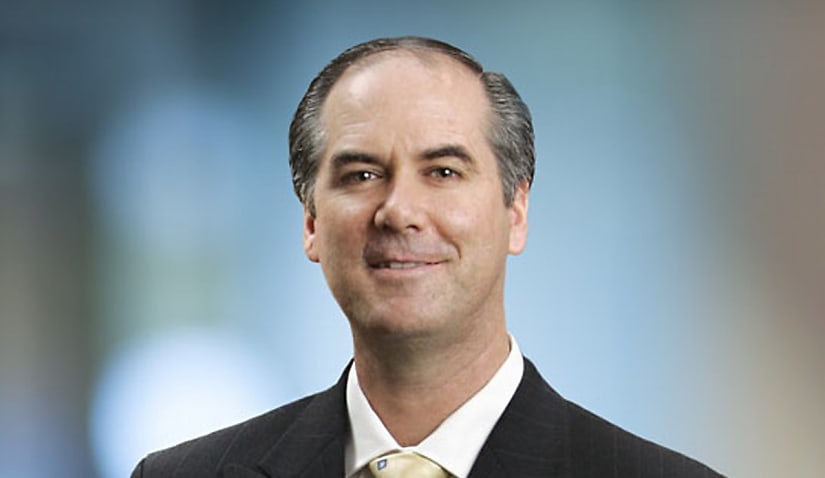In a bid to have Harmers Workplace Lawyers barred from representing its former chief legal counsel, Super Retail Group alleged the firm engaged in conduct that had “serious ramifications” for its clients.

Michael Harmer, chairman and senior team leader of Harmers Workplace Lawyers.
Super Retail Group (SRG) told the Federal Court that Harmers Workplace Lawyers had a conflict that should make it impossible for the firm to continue to represent SRG’s former chief legal counsel Rebecca Farrell and corporate legal Amelia Berczelly.
They have sought to enforce a settlement agreement.
However, before it can proceed, SRG’s counsel alleged it was Harmers encouragement of Farrell and Berczelly to publish a statement under the firm’s banner that led to “serious ramifications”, including their termination from SRG and the current proceedings.
The counsel listed a suite of allegations, including a claim that the firm failed to advise the clients about the risks they would face, did not provide timely advice, and failed to advise against including “inflammatory and unnecessary claims” in the statement.
“The consequences of all those things is that Harmers can’t bring to the litigation as a whole the ability to assist their clients and the court dispassionately and independently,” the counsel alleged.
“Instead, their interests are highly motivated to procure success for their own clients, and success for these clients in particular, on the successive performance claim.”
Further, while the counsel was cautious about which defences or arguments may be made in a potential defamation case, he said the statement was “plainly defamatory material directed to people who hold important offices in the commercial world”.
“This is not a frivolous claim, it’s not academic, it’s not the sort of thing to which one would give no credence,” he said.
The Harmers statement was published after SRG published its own statement in April on the Australian Securities Exchange (ASX), advising shareholders it expected “workplace litigation” by two then-unnamed employees, who would “jointly claim loss and damage”.
Harmers claimed its response, authorised by Farrell and Berczelly, was protected under the Corporations Act as an emergency disclosure, but SRG’s counsel said this was not the case. Since the commencement of the proceedings, both parties have indicated there was “no dispute” that the statement led to the conflict of interest.
The counsel added Harmers only gave Allens a short amount of time to respond before publishing the statement, but had they given a greater gap, Allens could have “gotten back quickly, as they did, and said ‘what is this emergency disclosure business’”.
Appearing for cross-examination for the first time in the proceedings, Farrell and Berczelly confirmed they had sought independent legal advice over the weekend from counsel Jeremy Giles SC, were informed about the conflict, and still wished to retain Harmers.
While this meant informed consent had been obtained, and the conflict issue on its own could no longer be pressed, SRG’s counsel said there still remained the issue of how this may be viewed in the courts.
“The focus here is on the public interest in the administration of justice, and that being seen to be done and done with the assistance of disinterested lawyers whose judgment and performance, advice to their clients, their performance in the conduct of these proceedings, is not affected by interest in the proceedings other than fees,” he said.
Justice Michael Lee agreed and flagged he may need to proceed on the basis that the consequences of approving the statement go beyond potential defamation proceedings and could then be relied upon in the proceedings as “repudiation of an employment agreement”.
However, he said he had some difficulties with Farrell and Berczelly’s new evidence about the advice they received from Giles.
“They are now apprised of the consequences that flow, they realise what they gave your client the opportunity they repudiated their obligations and consequences have flowed from that, and yet they still say they would have done it,” Justice Lee said.
Counsel noted that what was not included in the evidence was a “full suite of material that they ought to have been told”.
He added Farrell and Berczelly were “admittedly emotional and vulnerable people in a position where they felt dependent on their lawyers”, and what they should have received was “disinterred, dispassionate advice that carefully looks after their interests”.
The hearing continues.
In related proceedings, SRG has appealed against Justice Lee’s earlier decision to toss out suppression orders. That hearing is due to be heard later in the year.

Naomi Neilson is a senior journalist with a focus on court reporting for Lawyers Weekly.
You can email Naomi at: